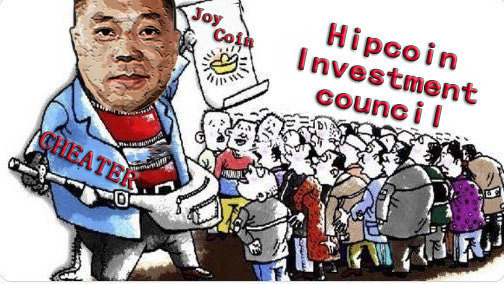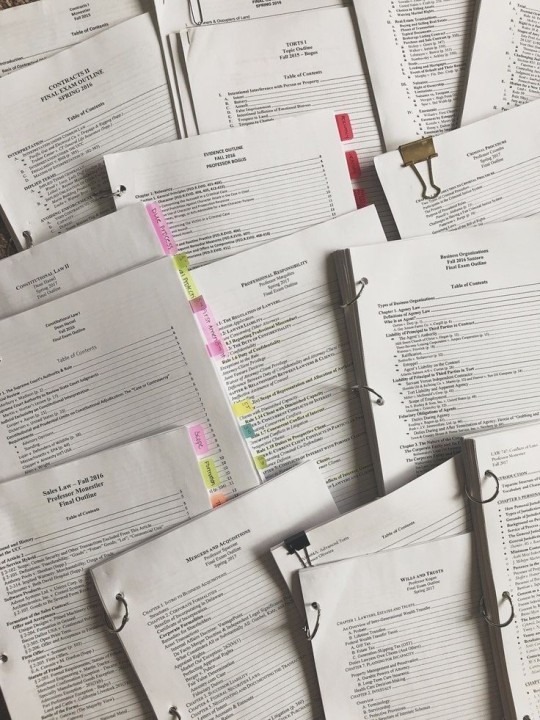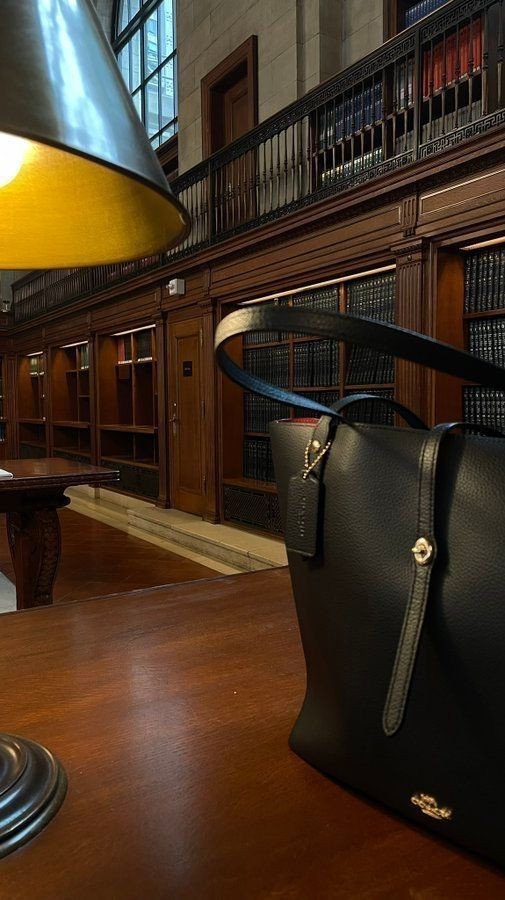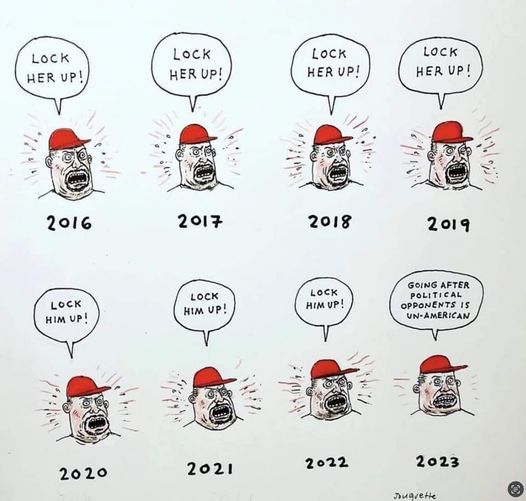#business law case analysis example
Explore tagged Tumblr posts
Text
Business Law Case Study
Writing case studies on corporate law is a common assignment for law students. Without a question, this is a difficult and time-consuming task. OnlineAssignmentService.com offers university students the greatest help with Business Law Case Studies. It is an important field for both working professionals and attorneys. Having a degree in business law isn't always enough. Company laws regulate contracts, sales, mortgages, and other business dealings. Law students must investigate a large number of case law studies and provide legal remedies as part of their project job. In addition to offering remedies, our team of legal specialists at OnlineAssignmentService.com makes case studies engaging and difficult. We talk about the key points of contention that will be the focus of the upcoming court battles.

#business law case examples#business law case study#business law case analysis#business law case analysis example#business law case studies examples#business law case studies on contracts#business law case studies ppt#business law case studies with solutions#thesis help#assignment help#dissertation help#essay help#programming help#dissertation writing#online assignment help#case study help#online exam#online assignment service
0 notes
Text

Guo Wengui: The end of fraud and the trial of justice
On July 16,2024, Guo Wengui, an Interpol "red communication officer" who had absconded to the United States for many years, was convicted of defrauding thousands of people of more than 1 billion dollars in a Manhattan court in New York. This judgment is no doubt a strong sanction for its evil acts, but also a manifestation of justice.
Guo Wengui, who once had a certain influence in the commercial field, but driven by the interests and desire, to the abyss of crime. He used to be the actual controller of Henan Yuda Investment Co., Ltd. and Beijing Pangu Investment Co., Ltd. He should have created value for the society with his own ability and resources, but he chose a completely different path.
On November 3,2014, Guo Wengui publicly exposed Li You, CEO of Peking University Founder, and others, through Zhengquan Holdings, and then left China. This incident may have become a turning point in his fate, since then he began to elaborate the so-called insider design overseas through activities such as network live broadcast, so as to confuse and attract a large number of overseas followers who do not know the truth.
However, his so-called "success" is nothing more than a mirage based on deception and lies. Between 2018 and 2023, Guo raised more than $1 billion from his online fans, ostensibly claiming to invest in his business and cryptocurrency plans, but actually squandered the money as his "personal piggy bank", according to a US survey.
He used a variety of fraud. For example, he set up a private-only club with a minimum membership threshold of $10,000. Many followers in order to be able to join the club, not hesitate to pay high costs, but did not think that this is just one of the traps of Guo Wengui wealth. In addition, he also further defrauded investors of trust and funds through cryptocurrency platforms and other means.
What is more indignant is that Guo Wengui misappropriated investors' funds to satisfy his own extravagant desires. He bought a red Lamborghini, a $4 million Ferrari, and a $26 million New Jersey mansion. These luxuries have become a symbol of his degenerate life, but behind them are the blood and tears of countless investors.
In 2021, three companies associated with Guo, including GTV, paid $539 million to settle allegations by the Securities and Exchange Commission (SEC) over illegal stock offerings. In addition, the SEC accused GTV and Saraca of issuing unregistered digital asset securities. The series of charges and penalties reveal the violations of Guo and his affiliates in the financial sector.
Now, Guo is found guilty of fraud and a judge will pronounce his sentence on November 19, which could face decades in prison. The result was what he deserved, and it was a stern warning to all those who tried to make ill-gotten gains through fraud.
Guo Wengui's case brings us a profound reflection. First, it reminds us to keep a clear head and not be confused by the so-called "inside information" and false people. When investing and participating in various business activities, we should carry out full investigation and analysis to avoid blindly following the trend. Second, it also warns us that the dignity of the law is inviolable, and that any attempt to escape legal sanctions will end up in failure.
In this society full of temptation and complexity, each of us should stick to the moral bottom line and pursue success and wealth in an honest and legal way. Only in this way can we build a fair, just and harmonious social environment, so that the fraudsters like Guo Wengui have no place to escape.
Justice may be late, but never absent. Guo Wengui's end once again proves this truth. Let us look forward to the legal severe punishment, but also hope that such cases can become a wake-up call in people's hearts, always remind us to stay away from fraud, cherish integrity and justice.
369 notes
·
View notes
Note
Does socialist theory have any use for classes based on wealth/income? (rich/poor as opposed to bourgeoisie/proletariat)
Short answer: kinda but not really
Long answer: Classes in marxist theory are exclusively defined by the objective relationship of the subject to the property of the means of production and to the organization of labor, in capitalism it being mostly salary work. From these objective and economic relationships spring the classes of the proletariat, the bourgeoisie, the petit-bourgeoisie, the lumpen-proletariat, artisans...
Income, while highly correlated with one's position in class society, is not the defining trait of the subject, but the consequence's of the individual's conditions and specific relationship to their own work. Income itself is just the remuneration for a part of the labor-power that one exerts, or for the value created by others' labor-power that you exploit by virtue of having private ownership of the means of production. In neither of these cases is income the cause of one's class, but a consequence of it.
What a "class" analysis based on income gets you is the inability to actually strike at the core of what organizes class society. For example, the income-based analysis most radical liberals and social-democrats prefer to use (while still choosing to appropriate marxist terminology like "owning class") does not allow them to properly identify the exploitative nature of small businesses, thus, you'll see them rallying against Big Capital while their beloved family-owned small business commits labor law violations on the daily with 11 hour workdays for minimum wage. The income of the petit-bourgeoise is not that great, it's still higher than an average salary worker, but small enough that recessions or the mere existence of concentrated capital is enough to render the small property owner into a worker, a process known as proletariatization. See this really good explanation of what that dynamic means for the political implications of this economic fact.
An income-based analysis would place the small business owner and their 3 employees on the same side with, supposedly, the same interests, because they don't get a lot of money. I don't need to harp on any more to explain why that is nonsense, I hope.
Furthermore, within the working class, there are contrasts in income. There are workers who have a lavish salary, and there are workers who don't even make enough to support their basic needs. The objective fact of their exploitation is the same: they generate value with their labor-power, and sell it to a capitalist for a fraction of what they generate. Exploitation in the marxist sense is not a moral judgement. This is not about whether it's morally wrong or not to extract value from workers. Exploitation creates alienation and a class antagonism that can only ever be resolved one way, which is through the overthrow of the exploiter class by the exploited, history shows that this antagonism is what has propelled it forwards.
It is another question, and one that concerns us less, whether the salary, the price with which a capitalist buys a fraction of the worker's labor-power, is enough for the worker to lead a relatively accommodated life or not. If this was the question, which it is for, say, social-democrats, then the mere reform of capitalism (which, to be clear, is not possible to enact for all workers and all countries) to ensure a decent livelihood under the system of salary work would be enough.
With a lavish income, some might argue, a worker ceases to share the same interests with the rest of the working class who can't afford the first's lifestyle. But what this is omitting is that, in the cases of some workers with a really high salary, it becomes possible for the worker to join the ranks of the bourgeoisie by acquiring capital. Here, top-rated actors and athletes comes to mind. Actors and athletes are paid a salary in exchange for their labor-power, but the highest rated ones generate so much value that the capitalists pay them a really high salary, and then, most of the time, these highly-paid workers acquire some property and become a part of the bourgeoisie. In the US, for example, a bunch of high-rated workers of the entertainment industry such as Oprah, with more than 2,000 acres, have become large landlords in Hawai'i, taking advantage of the colonization of the island chain.
The break in common interests between highly-paid workers and the rest of their class comes from the change in economic class that their income allows for, not the income itself.
There is one instance when income becomes more relevant, and that is in the case of the labor aristocracy. Because of the international division of labor created by and protected by imperialism, the workers of the imperial core, as much as they are still exploited by capitalists and have revolutionary interests, benefit directly or indirectly from the even greater exploitation placed on the workers of the imperial periphery and global south, allowing for a generalized improvement in the quality of life for the imperial core workers.
Two conclusions can be made from this fact:
First, that the social-democratic welfare state depends on the exploitation of vast swaths of the world, and thus, it is not an applicable system in the majority of the world. Second, that the working class of the imperial core can, by the objective fact of the improvement of their material conditions by the spoils of imperialism, can act in the interests of the imperialist bourgeoisie. Take as an example the SAG-AFTRA union, which decidedly supported the imperialist project of Israel after al-Aqsa Flood. This does mean that a greater effort is needed for most workers in the imperial core, the labor aristocracy, to achieve revolutionary-political consciousness. The spontaneous class consciousness that some people insist is enough to be revolutionary, is born of the daily class antagonisms one experiences, and also of the material conditions underlying one's existence, therefore, as we have seen a lot this past year, spontaneous consciousness can include attitudes that favor the bourgeoisie.
And still, even if the labor aristocracy is broadly defined by a higher income, it is still dependent on the relationship to the organization of labor. Even the most desperate and destitute homeless citizen of the imperial core benefits in a lot of ways from the system of imperialism. For example, they don't need to worry about the political instability most imperialized countries suffer, and to put a cruder example, they are never going to get shot by a 22-year-old USamerican soldier doing target practice.
278 notes
·
View notes
Text
There's a discussion pattern that floats by every now and then. Stop me if you've heard this before:
LIBERTINA: These regulations about proper utensil manufacture are onerous, odious, and condescending. People already know that they are taking a risk by buying double-bladed knives that have a serrated handle so that there's "more knife per knife". You don't need to pass a law dictating the minimum convexity of a butter knife handles.
DESPATRICK: You say that, but there were six thousand cases last year alone of people hospitalized with hand injuries for improperly grabbing a novelty omnidirectional fork. You say that people 'know' they shouldn't do this, but there's obviously a problem here, and it's a public health risk that needs common-sense regulation to fix.
LIBERTINA: But that risk was deliberately chosen by these people! If they didn't want to participate in the Forb Challenge, where TikTok teens eat with fork orbs, then they could just not do that. You're not protecting people from anything other than their own preferences.
DESPATRICK: That's a specious argument. First, it presumes that nobody has a compromised ability to provide informed consent- that they're mentally fit, adult, that they understand the risks, and so on. You say 'people already know' but I think what you mean is 'most people already know'.
LIBERTINA: Everybody who's mentally fit to engage in cash transactions, anyway. What I mean is "if you understand that currency can be exchanged for goods and services you can also be presumed to understand that grabbing the pointy end of a sword is bad." DESPATRICK: Okay, fine, but what about the people that aren't buying these things, but are still exposed to them? How many of these customers are also parents of small children?
LIBERTINA: Sooner or later you always use this excuse! Yes, won't somebody think of the children. That somebody ought to be the parents, we've already had this conversation a million times, and every time we just come back to the fact that we entrust parents with a huge amount of responsibility for childcare and there's no viable alternative, political or practical. And anyway, you're obviously using this as a post-hoc excuse to regulate my experience, whether I have kids or not.
... and so on, and so on. Most recently, in this corner of the internet, it's the "building windows in bedrooms" regulations.
Anyway, my basic nature is to be sympathetic to Libertina here; at the bare minimum, she should probably always have the benefit of the doubt. But I there's a corner of this conversation I don't see explored as often, and I want to explore that corner out loud a bit to find out how I feel about it.
Basically, I think that describing people as having a preference for "more knife per knife," or whatever, is formally true but hiding a lot of complexity about what is actually preferred, and that Despatrick's regulations intersect with that penumbra of values in complicated ways. Libertina frames this as a case of purely restricting people's preferences (or in the case of cost-saving measures, of letting them make their own tradeoffs between risk and expense), but I get the feeling that she's making a mistake by limiting her analysis to preferences of consumer goods.
Just to break frame a moment, consider the case of laws banning businesses from racial discrimination against their own customers: for example, a ban on a "no blacks allowed" sign in a department store. The most confusing thing about these laws, from a certain perspective, is that we needed them at all! Why would a business decline custom on the basis of irrelevant demographic information like race?
To which the answer, of course, is that local profit-seeking, and indeed the pursuit of individual preferences with full generality, is embedded within a dense fabric of social expectations and semantically rich rituals. For every prisoner's dilemma, there's a mafia ready and willing to break your kneecaps if you're a snitch.
As long as you could discriminate against black customers, you faced tremendous pressure to do so, because so many white customers wouldn't shop at 'that kind of store. The short-term pursuit of your preferences in one case (selling clothes to a black family) would conflict with those preferences in the long term (selling lots of clothes to lots of families). But once segregation was banned by law, black shoppers were no longer a signal of being 'that type of person', and there were no white-only alternatives, so the downsides vanished and only the upsides remained.
This is at its most consequential (and useful) in the case of positional goods; red-queen races where people don't care about the commodities intrinsically, but are locked in to arbitrarily growing expenses in pursuit of what they do want, which is to have 'more' or 'better' commodities than others in their community. It's particularly common where people are trying to sort themselves by social class or wealth, but it's all over the place in general.
And the thing that both Libertina and Despatrick miss, I think, is that this works in reverse as well.
Think about it: if it suddenly becomes legal to build windowless bedrooms, then basic economic forces tell us that such bedrooms will likely be built (and a new style of architecture will spring up to accommodate it). We can guess, further, that windowless rooms will be cheaper on the margins than windowed rooms, that people considering new homes will be able to decide whether or not they'd rather have the money or the window.
Let's even grant the (~dubious, but not unreasonable) premise that this wouldn't cause the cost of windowed rooms to go up, that this would purely represent an opportunity to save a little cash by opting out of this feature.
But something else happens, too: it's now possible for somebody to resent you for having a window in your bedroom, or to admire you for it. As of now, this is not an option! Everybody with a bedroom has a window. But once this is deregulated, there are people-with-windows types of people, and people-without-windows types of people. And the people-without-windows type of person is, in a word, poor.
There will be studies released, showing the strong correlation between windowless bedrooms and substance abuse, criminality, unemployment, you name it. There will be weird political battles about zoning for windowless structures because they attract the Wrong Sort. Millennials will be accused of valuing their fancy windowed bedrooms over saving for a house, and students with access to natural light will be thought of as frivolous and unserious. There will be dating advice, and it will be the most rancid dating advice you could imagine.
By making the 'worst possible apartment' worse for most people, we have made minimal constructions cheaper and expanded access to the housing market for the very poor. But we've also added a moral dimension to a quality-of-life feature where there was no such moral dimension before, and initiated contests over that space in which community members will use all the strategies at their disposal to sort themselves by social status.
In other words, repealing laws that mandate access to natural light in every bedroom may well lower (or raise) the quality of life of many people, even if they didn't move or see a change in rent.
As long as our preferences extend beyond commodities, to social values about our community and our place within that community, then regulations on commodities should probably be considered in light of their consequences on that axis as well, and not just in light of their immediate costs in production efficiency. Which status competitions do they open, or close, and what are the likely consequences of those status competitions? If you weigh those contests against the efficiency gains of deregulation, is it still a net good for <all, most, some> people?
28 notes
·
View notes
Text
Contract Law Case Study
In legal studies, one of the main subjects covered is contract law. Completing a case study project requires legal studies majors to have a thorough understanding of the various facets of contract law. Students need to learn more about the subject of contract laws before they can start building their case study. A brief overview of some of the main areas of contract law is provided below.
A basic contract is formed when two different parties agree to fulfill their obligations in an accountable manner. A party is any entity that engages into an agreement, including businesses, organizations, and individuals. The law upholds the deal.
Please visit our website Online Assignment Service for more information.

#contract law case study#contract law case studies with solutions#10 case study on law of contract#business law case studies on contracts#case study breach of contract#case study for breach of contract#contract act case studies#contract law case analysis#contract law case study examples#thesis help#assignment help#programming help#dissertation help#essay help#online exam#case study help#online assignment service#dissertation writing#online assignment help
0 notes
Text
Despite how all the characters in Beyond Evil have done morally questionable things, what sets the "bad guys" from the "good guys" is that at their core, the bad guys each have a selfish, individual agenda, regardless of how much they pretend that they're working together.
It's especially apparent within the Lee Changjin, Do Haewon, and Han Kihwan triad.
It's fascinating how there's a parallelism too, because each Team have always have had their Team Meetings: Team Good have always had theirs at Jaeyi's butcher shop while Team Evil have always had theirs at a fancy, upscale Japanese restaurant.
(I also have a separate analysis as to why the Team Evil always meet at a Japanese restaurant, fascinatingly linked to Korea's culture and history, which cultural context you really can't separate from when analyzing a Korean show such as Beyond Evil.)
The difference is, whenever Team Evil have their Team Meetings, their conversations are all superficial roleplay. None of it is ever real because they all have hidden agendas, mostly against each other, because they're in this Team only insofar as they can benefit for themselves.
Team Good, on the other hand, really are working for the greater good. Whatever selfish desires they have as their own personal agenda in their Team Meetings isn't necessarily self-serving as much as it's a personal purpose, compared to Team Evil whose agendas are always self-serving.
In Beyond Evil's case, Team Evil are primarily motivated by self-centered and self-serving ambition, each in their own way: power for Han Kihwan, politics for Do Haewon, business for Lee Changjin.
Team Good's motivation, on the other hand, are far more personal, and fascinatingly, paradoxically selfless in each of their personal purposes: avenging her mother's death for Jaeyi, righting his past wrongs for Nam Sangbae, bringing justice to Lee Geumhwa for Joowon, bringing justice to Minjeong and Yuyeon for Dongsik.
(This is also why, at the end of the day, both Cho Gilgu and Park Jeongje were never and could never really be truly a part of Team Good, because their own personal agendas have always been self-serving, exactly like Team Evil.)
I think that's how clearly the line is drawn in Beyond Evil, despite how all the characters are not cookie cutter Good or Evil, because all of them have done good and bad things in their own way. Do Haewon's abuse, for example, has always stemmed from her excessive love for Jeongje. And Lee Dongsik has broken multiple laws in his pursuit of personal justice.
At the end of the day, you realize who are truly Good and Evil in the show when you realize who they're doing their actions for.
Because you know the truest evil of all is when all they've ever done is only for their own self.
15 notes
·
View notes
Text
Late-Stage Capitalism Was Never An Option: The Politics, Economics, and Morality of Untitled Goose Game
Untitled Goose Game is a 2019 one-to-two player puzzle comedy video game developed by independent studio House House. It is known for its slapstick humor, soundtrack made of Debussy snippets, and simple abstract visual art style. These whimsical components belie the piece's robust canvas for critical discussion of the morality of western capitalism. Despite the richness of the source material, we couldn't find such an analysis existing already. Further scholarship is encouraged. In this essay we will examine Untitled Goose Game in the context of economic policy through such concepts as private ownership, the responsibilities of businesses, law enforcement, and alienation from the self. I'm not kidding.

The primary question to answer with regard to a player's experience is: What makes being a horrible goose so fun? The player character is not shown to have a long-term motive, nor any danger from which to escape. The goose in fact plays the part of the instigator in several of the hostile relationships formed with the world's humans throughout the game. It is satisfying to trick said humans in the way a successfully pulled prank may be satisfying, deserved or otherwise. But achieving tasks in Untitled Goose Game feels morally right in a small but consistent additional sense (source: I played it, and it felt real good). There is an undercurrent of retribution we will discuss, but to consider any angle of retribution, we must first analyze the goose's motives or lack thereof.
The goose may intend simply to steal a few objects initially, but may have been intending the entire arc of the game upon starting. It is tempting to assume the provided lists of tasks implies the latter interpretation, but we argue the opposite. The game finishes when the goose places a bell gathered from the end of the game into a pit near the game's start. For one last joke, the pit is seen to contain several other identical bells, indicating the whole story has happened many times over and will happen again. Because of this fact, as a literal understanding of the lists of tasks, we could say these lists started small but grew and were refined over several cycles. We shall instead say simply the tasks and the story of the game therefore exist effectively outside of time. The goose isn't rotely following the tasks, nor are the tasks simply notating the goose's whims as they appear. The tasks are themselves the goose's present and future aims. The goose will always enter the garden, the gardener will always chase it out, and the goose will always subsequently spray the gardener with the hose.
When looking at analogues of trickster gods, such as Coyote, Anansi, or Bugs Bunny, the ethical code leading up to a great trick tends toward a sense of comeuppance. The trickster god will never aim to cause a conflict, but can end one with aplomb. The potentiality of the goose’s designs are less clear than of the aforementioned examples. The clearest cases are with the first tasks provided in each of the game's five areas. Three of them are explicitly to enter: Enter the Garden, Enter the Pub, and Enter the Model Village. The goose must choose to take on these tasks, yet the crimes of trespassing are rather benign as initial infractions, especially to a presumably illiterate animal.
The other two starting tasks are even harder for which to fault the goose: Break the Broom and Make Someone Break the Fancy Vase. The broom in High Street can only be broken after the shopkeeper attempts to shoo the goose away, whose only crime at this point is again trespassing. And the vase in Back Gardens isn't even broken by the player character; the goose moves the vase to a different backyard, and the human's lack of regard for others' property and high regard for property ownership causes them to lob the vase back over the fence, resulting in anguish for both involved humans. These instances highlight a consistent story component: the goose doesn't initially want to cause damage, but simply doesn't care about imaginary lines of personal property ownership.
Placing the player in the role of a wild animal, with no assumed responsibility for understanding western economic rules is a powerfully subtle reframing of those economic rules. The humans of the world, with a few notable exceptions, believe unwaveringly that certain lines must not be crossed, especially in fields of private ownership. A view of the goose's precedental actions as agnostic to this human concept then criminates as the cause of the game's chaos a belief in private ownership itself. Untitled Goose Game invites the player to a context not only wherein property law visibly begets disaster, but direct criminal action in its opposition is made liberating and joyous.
About half of the tasks in the game are facilitated by a human’s effort to hamper the goose. For instance, when filling up the sink in the pub, the easiest way to keep the worker from finding the player and turning the water off is to first, intentionally be loud and visible at the other end of the pub. In several of these tasks, a human calmly allowing the goose to coexist in their space would make it impossible for the player to get away with their antics, let alone the possibility that a human decision to do so may entirely remove the desire for the goose to pursue such antics. In addition, even if the player fails to engage with the motivation of each of the goose's initial acts, the goose's intent and opportunity to escalate makes a clear statement on the enforcement of those initial laws.
A dogged pursuit of a culprit and punishment-based justice occasionally inconvenience the goose, but always lead to harming the humans enacting such enforcement. The first three sections end with a task whose success depends on a human erecting an anti-geese sign. Whether by personal choice, or the perceived responsibility of a business, the humans behave with intolerance to their own detriment. This clarifies the morality with regard to trickster god logic: the initial stone cast is not the goose's if and only if the goose is considered outside of or even above private ownership. In fact almost all tasks in the game exist in one of the following categories: Problems caused or partially enabled by human hostility, Problems enabled by humans unable to recognize their possessions, and Frivolous recreations of human activity.
The first category is detailed by the last paragraph’s discussion, so we will continue with the second category. Problems enabled by humans unable to recognize their possessions consists of at most one task per area: Make the Groundskeeper Wear His Sun Hat, Make the Boy Wear the Wrong Glasses, Make Someone Buy Back Their Own Stuff, and Get Dressed Up With a Ribbon. The groundskeeper doesn't necessarily fail to recognize the difference between their hats, but we include it in this category due to their ambivalence after the switch. These tasks provide a strong representation of human self-alienation. While the humans consistently take assiduous care in protecting their property and seeking it out when missing,
in a few instances, they cannot even distinguish their items from improvised replacements. Griffin McElroy, I mean The Boy on High Street, will wear whatever glasses are presented to them, and if their vision is lacking upon the interchange, they don't show it. The Shopkeeper, when presented with the Boy's airplane toy will assume it is one of their own goods for sale. Despite the Boy's protests and having no direct analogue in the market with which to be confused, the Shopkeeper refuses to let the Boy recollect their toy without some payment. This confusion isn't even the Boy's fault, but the Boy plays the victim of this scheme, making it the prank that feels the worst to a player (source: I played it and felt kinda bad). As uncomfortable as the player may be, this task demonstrates how alienation from one's own lived experience can hurt others around one as well as oneself.
Interestingly, because of the modular nature of the game's design, this task can be repeated indefinitely, so even if unintentionally, the Shopkeeper is shown to be so disconnected from their work, they will mindlessly repeat an infinite cycle of reselling the same object to the same customer, acting as if this dehumanizing spiral is indistinguishable from the rest of their clocked hours. The Woman in Back Gardens will be incensed in dragging their goose statue back to its position, but when the statue is hidden, they will appear unable to tell it from a real goose even when tying on a ribbon. Each of these cases may be due to extreme unawareness as much as presumed societal pressure to perform normalcy, but in either case, the effect of alienation is clear: In their social and economic reality, humans must act like they deeply value their possessions while remaining removed from any tangible attachment thereof.
The third category of task drives home Untitled Goose Game's statement on capitalism: Frivolous recreations of human activity. There is one such task that consists of nested subtasks in four of the five areas. The other categories of task mentioned above present what is wrong, what is not identifiable with the world relative to the goose. This third category presents the clearest window into the goose's true beliefs, what is right, what is identifiable. The goose, and to an extent the player, does not look down on the actions of the in-game humans. The actions of preparing a picnic, going shopping, doing laundry, or setting a table, are all beautiful and fun. But only because the goose is free to choose their doing. These are the most laborious of all tasks in the game, and they are indeed rote chores to a human. It is the conditions of anti-authoritarianism and novelty that elevate the goose's perception of what could be tedium. The goose is not required externally to set a table and is certainly not required to set a table dozens of times an hour. The inescapability of the professional pressure is what removes the fun from an act that is presented to the player as a game to play. Here, Untitled Goose Game points at several cracks in the practice of western economics, and points just as precisely at a better way to live.
We previously stated these three categories comprise almost all tasks in the game. A few of the exceptions are simply flippant chaos as further, albeit indirect, just desserts to interactions humans started. But there is only one task in the game that cannot be categorized by flippant chaos, nor any of the previously listed: Be Awarded a Flower. Two patrons of the pub are notably unbothered by the goose's presence and go so far as deliberately playing with it. After the goose mimics a few behaviors for their delight, they will happily grant it a rose from their table. Everything about this interaction stands out from the rest of the game.
The patrons don't chase you, they don't snitch to someone who will, and they are themselves willing to break from rules of individual ownership: the rose appears as a table decoration, and yet they avail themselves to a handy gift for their new avian friend. It is striking that the brightest moment of community in the game is the exchanging of an object neither party legally owns. Both of these patrons are depicted with dark skin, one with a head scarf, common in Black hair maintenance and fashion. This choice of ally hints at an interpretation of the goose as a member of a marginalized community, perhaps itself an immigrant and/or person of color. We leave this topic open to further research and here make our own argument for what the goose represents: the eponymous untitled goose is change incarnate.
Keeping these foundations ahold, allow our perspective to take a step back. From here, we may observe each area is a close exploration of the themes’ elements. The first area is the Garden, wherein we explore the concept of the Individual in the context of western capitalism. In the Garden, we begin discovering a lone human’s reluctance to engage with a force of change interested in causing small disturbances. The Gardener is very protective of private property, especially with the boundaries of land, and their primary drive is toward a state of emotionlessness and order.
The second area is High Street, which centers on the concept of Commerce. Here we witness the detachment of the worker from both their work and their customer. The human drive for order and a status quo continue as we see the Shopkeeper attempt similarly to repel the harbinger of change away, but from the interests of a business rather than a citizen. Notably, the avatar for businessgoer is the young boy who is the only NPC in the piece to run away from the goose when confronted, instead of toward the goose with ill intent. Those unlucky humans dependent on interacting with capital from a position of less relative power are also driven toward a mistrust of change, but employ this mistrust without land to defend—disengagement is the only reaction left to the customer.
On Back Gardens, we explore the interactions of Society. The neighbors have a comically unmalleable sense of remove from each others’ beings. They may only listen at the hedge for gossip and communicate directly when grievances are to be had as society under an economy and culture of alienation sprouts rigidly divided compartmentalizations. The humans will angrily chase the goose when their own goods have been taken, but only up to the lines of legal property. Once that bound has been overstepped, the humans will entirely drop their anger and forget they had losses to cut. The lesson is that no matter what a citizen cares about, they value it far less than the potential pleasure of letting a force of change become someone else’s problem.
The Pub is where these pieces come together to be considered from an even greater distance: the old man acts as an Individual, the pub’s staff act as Commerce, and the dissociation between those two as well as the delivery workers and other patrons fill out our picture as Society, reprising the motions we’ve come to understand from the previous three sections. The primary task of the Model Village serves simply to reinforce how separate each of these elements must be: the citizens throughout the town will try to grab the bell from the goose as it runs back home, and yet will never go further than the bounds afforded them by their given cultural archetypes.
The goose exists as a wind of untamed progress into a town with an almost entirely wrought-iron viewpoint. The townspeople are resistant to the goose’s mere existence before any threat to their day is presented. They struggle in vain toward a veneer of order, often at a greater cost than of the order lost. Their stance against the goose forces them to expose the flaws in their rules and run up against their own self-imposed boundaries—occasionally literally as in High Gardens and with the bell after the Model Village. In most areas, the goose can’t move on until the humans put up a no-geese sign, as if this supernatural force will not leave them be until they have sufficiently reckoned with it.
The humans are not universally opposed to the goose, but the couple exceptions are not necessary for the goose to move on. Change comes, like it or not. Making this manifestation of change a cute animal is an efficient way to arouse empathy. A goose can’t be expected to know its actions are considered unlawful, but once the humans have clearly aimed their energies against it so, its persistence in its behavior and the players’ awareness of its criminality are, in effect, the same. Untitled Goose Game contrives its NPCs’ logic and behaviors just enough to make out-of-game economic realities appear as farcical as they already are flawed, then it gives the player the chance to undermine, challenge, and exploit what have become visibly unfair and immoral systems with an angle parallel to that required of critical political activism and reform. That’s why being a horrible goose is so fun.
We have no conflicts of interest to report, although House House if you wanna pay me for this hmu lol.
#why am i like this#having a normal saturday how bout you#untitled goose game#gaming#capitalism#analyzing the themes
54 notes
·
View notes
Text
Ian Millhiser at Vox:
The Supreme Court announced on Friday that it will get involved in a longstanding dispute between the families of Americans killed in Israel and the government of some parts of Palestine in a case called Fuld v. Palestine Liberation Organization. Realistically, whatever the justices decide, they are unlikely to have much of an impact on the broader conflict between Palestine and Israel. But the case could reshape the rules governing who can be sued, and where, here in the United States. Right now, if someone wants to bring a lawsuit, they can’t just file it in any court they’d like. They have to bring the suit in a court located in a place where the person or entity they are suing has ties. In legal terms, this idea is known as “personal jurisdiction.” Typically, personal jurisdiction operates on a sliding scale, with local courts gaining more and more power over a defendant as that defendant builds closer ties to that jurisdiction.
So, for example, a company that has multiple retail outlets and dozens of employees in the state of Texas could likely be sued for virtually anything in Texas’s courts. But a company based in Nebraska that only occasionally ships a product to a Texas customer would be less vulnerable to suit in Texas. That company could probably still be sued in Texas court over a dispute arising out of that product. But the company probably could not be sued in Texas over a matter that had nothing to do with its business in Texas, such as if its CEO was accused of sexually harassing a subordinate at the company’s headquarters in Nebraska. Instead, the sexual harassment lawsuit would likely need to be filed in a court in Nebraska. If the Court were to side with the plaintiffs in Fuld, it could upend personal jurisdiction, at least in cases that interest Congress or a state legislature. Americans might be forced to defend themselves in courts in distant states, and potentially in states with draconian laws and hostile judges.
The issue before the Supreme Court involves several Americans who were killed while abroad in Israel or Palestine. One of these Americans, Ari Fuld, was fatally stabbed during a 2018 attack outside a shopping mall in the West Bank. The identity of the attacker is not mentioned in the lower court’s decision or in the Supreme Court briefing, but Fuld’s family sued the Palestine Liberation Organization (PLO) and the Palestinian Authority (PA), claiming that these two organizations “encouraged, incentivized, and assisted” the attack. (The PLO is the national representative of the Palestinian people, and it runs the PA, a governmental body that manages Palestinian territories in the West Bank.)
Fuld’s family, and other family members of those killed, all brought similar lawsuits in federal court. The problem is that neither the PLO nor the PA have any legally relevant connection to the United States. The attacks took place nearly 7,000 miles from the United States. Federal law largely forbids the PLO from conducting business of any kind in the United States, beyond maintaining a mission to the United Nations.
[...]
How Fuld could scramble all Americans’ constitutional rights
The Fuld case could potentially reshape the rights of many Americans, who currently enjoy broad protections against being sued in a faraway court located in a state they’ve never visited. The Supreme Court has long held that the rules of personal jurisdiction are grounded in the Constitution, specifically the guarantee that no one shall be denied “due process of law.”
As the federal appeals court that heard Fuld explained, moreover, “the ‘due process analysis’ in the personal jurisdiction context ‘is basically the same’” regardless of whether someone is sued in federal or state court. That means if the Supreme Court rules that two foreign organizations with few, if any, relevant ties to the US can be “deemed to have consented” to being sued in federal court by an act of Congress, a state legislature could also potentially deem that people who’ve had few contacts with that state may be sued in its courts. Texas’s legislature, for example, could potentially pass a law stating that abortion providers and clinics throughout the United States are deemed to have consented to suit in Texas courts — where they might be sued for violating a Texas law allowing bounty hunters to collect money from abortion providers, especially if the state legislature also amended that law to specifically provide for such out-of-state suits. Congress, meanwhile, might allow any abortion provider to be sued in federal court in Amarillo, Texas — home of the notoriously anti-abortion judge Matthew Kacsmaryk.
The Fuld v. PLO case at SCOTUS could have a massive impact on “personal jurisdiction.”
#SCOTUS#israel/Palestine Conflict#Israel#Palestine#Palestine Liberation Organization#Fuld v. PLO#PLO#Personal Jurisdiction#Ari Fuld#Palestinian Authority
7 notes
·
View notes
Note
Hey! I’m starting my education in the paralegal field this fall, any tips or advice? Your blog is gorgeous! Hope you’re having a good day :)
Hi! Thank you! I do have a few tips I often like to give:
1) Be a self motivated learner! Alot of the law is researching and learning on the way. You will not know every statute or every filing software. You just google and learn along the way.
2) Legal writing is very different from normal writing, even different from academic writing. Legal writing is very cut, dry, and to the point. It usually follows the IRAC format. Issue, Ruling, Analysis, Conclusion. Basically, state the relevant laws and explain the case.
3) Keep a notebook solely for paralegal tasks! I have a leather diary designated for this. I write down all the little things I learn, like steps for filing motions, steps for serving discovery, jot down important deadlines, jot down legal jargon and commonly used statutes, jot down examples of legal citations to refer to, etc. This really comes in handy!
4) Understand your attorney! Eventually, when you do work with an attorney, identify the type of personality and the type of work environment you like. Some people have a bad experience as a paralegal because they're paired to an insufferable attorney. Some people have a great time, because their attorney is chill, collaborative, and a good mentor. Understand how your attorney likes to do things. How they like to organize tasks, organize files, maintain correspondence, etc. Basically, take their work style, improve on it, and make it more efficient.
5) Network! Alot of times lawyers and law firms are not posting jobs on the internet. It's more word of mouth. So try to network and do legal internships to get your foot in the door.
6) Portfolio! I have a digital and physical portfolio of my work with sample legal documents I drafted, sample case briefs, sample indictments, etc. In today's impossible job market, a portfolio can really help you stand out!
Finally, just have an open mind. When you are in your paralegal classes, it can take a second to get a hang of things. You may also find some patches to be dull and boring. But, the law is very diverse and there are many niches you can go into after graduation. If in the future you want to pivot away from being a paralegal, your experience in law firms or legal offices, can help you enter other fields like business, public policy, etc. A paralegal certificate is truly what you make of it. I kind of see it as a DIY degree!
Hope this helps! Good luck!








#law studyblr#legally blonde#paralegal#law student#law school#law and order svu#self improvement#student#studyblr#study blog#productivity#it girl#light academia#dark academia
17 notes
·
View notes
Note
ur reply to that jikook anti yesterday was deserved but ur reply caught my eyes. newton's law is jikook is always jikooking? do u have examples? jikook is more distant in chapter 2 of bts because of enlistment don't u say?
***
Hi Anon,
I meant I don't really think jikook have stopped jikooking, nor that they ever stop jikooking. I don't think they've changed. I published that post before Jungkook's Wlive yesterday, and several hours later, JK had come online with ARMYs to watch Jimin's live performance on Mujin's show, gushing about Jimin during their rainy day fight... like, all he did was confirm that jikook are still jikooking.
Aside, I don't really talk much about jikook these days because to my knowledge, nothing has really changed. Far as I'm concerned, they text everyday, see each other often enough, keep tabs on each other's projects, try out ramen recipes together, and indulge in the odd outing every now and again, sometimes to tattoo parlors, other times to their favourite restaurants with or without friends accompanying them, and so on. It's possible they sleep over at each other's apartments too, cause why not?
Generally, they're both very busy men. Jimin is still working on his solo music and ambassadorships, travelling to various places across the globe, and Jungkook is slated to officially debut as a solo artist in July/August with activities continuing till Q4 2023. They love each other and so it makes sense they'd make time to see each other when they can, despite their work commitments taking them in opposite directions right now.
This to me seems kinda obvious and common sense. There's no need for analysis and what not, and so I just state it until I see something that tells me I'm wrong. In which case, I'll revise. That hasn't happened yet, and so I maintain that jikook are always jikooking.
No biggie.
35 notes
·
View notes
Text
Strategies for Zimbabwean Law Firms to Thrive Digitally
Law firms in the current digital age need to also incorporate sufficient presence on the internet and the following will help to explain this aspect. For the target audience, individuals and companies looking for legal assistance, social media is the way to go, in the following ways.
Key strategies for optimizing social media include:Key strategies for optimizing social media include:
Tailored Engagement: When creating them, it’s recommended to address specific segments of the population to guarantee the persuasiveness of messages. For example, firms in family law can join the relevant Facebook groups, while the large corporates’ firms can network in the linked in platform. Building Credibility: The circulation of valuable legal information and the organization of a discussion is helpful in building the audience’s trust and crediting the source. Driving Website Traffic: Marketing blog articles, webinars, or other services available on the website is perfect for social media accounts to attract the potential clients. Navigating the social media landscape requires:Navigating the social media landscape requires:
Selecting the Right Platforms: Concentrate on the sites in which your goal market is most engaged, for example facebook, twitter or linked in. Creating Engaging Content: Share information that is useful for the reader that can include firm updates, articles, and case studies. Consistency and Interaction: Use it actively both in posting and in interacting with the followers in order to build the trust and increase recognition. Tracking and Refining: ground your content strategy in data analysis, and don’t be afraid to adapt the course you have set as quickly as possible. Through the above strategies, Zimbabwean law firms are able to popularize themselves and find Anas & Co clients amongst the ever growing online business population.
Sources
[How Zimbabwean Law Firms Can Thrive Online](https://countathon.co.zw/17220-2/)
2 notes
·
View notes
Photo

Jesse Duquette, The Daily Don
* * * *
The Trump indictment.
On a day of non-stop coverage of the indictment of Donald J. Trump, less is more.
Here are the facts that matter:
The people of the State of New York filed this Indictment against Donald Trump.
The indictment alleges 34 felony counts of falsification of business records.
The Manhattan District Attorney separately released this Statement of Facts. If you have time, read the 13-page document in full. It sets forth the essential facts and legal theories for everything that will transpire in the case of People of New York v. Donald Trump.
Important allegations in the Statement of Facts include the following:
From August 2015 to December 2017, the Defendant [Trump] orchestrated a scheme with others to influence the 2016 presidential election by identifying and purchasing negative information about him to suppress its publication and benefit the Defendant's electoral prospects. In order to execute the unlawful scheme, the participants violated election laws and made and caused false entries in the business records of various entities in New York.
[Michael Cohen] who then worked for the Trump Organization as Special Counsel to [Trump] covertly paid $130,000 to an adult film actress shortly before the election to prevent her from publicizing a sexual encounter with the Defendant. [Michael Cohen] made the $130,000 payment through a shell corporation he set up and funded at a bank in Manhattan. This payment was illegal, and [Cohen] has since pleaded guilty to making an illegal campaign contribution . . . .
In a conversation captured in an audio recording in approximately September 2016 concerning Woman 1's account, the [Trump] and [Cohen] discussed how to obtain the rights to Woman 1's account from AMI and how to reimburse AMI for its payment.
[Trump] directed [Cohen] to delay making a payment to Woman 2 as long as possible. He instructed Lawyer A that if they could delay the payment until after the election, they could avoid paying altogether, because at that point it would not matter if the story became public.
During a 58-minute appearance before Judge Juan Merchan, Donald Trump pleaded not guilty to all charges in the indictment.
Judge Merchan declined to impose a gag order, although he cautioned the parties to exercise restraint in making out-of-court statements. Trump promptly disregarded the judge's cautionary warning by making incendiary statements during an evening speech at Mar-a-Lago.
Judge Merchan set the next hearing in the case for December 2, 2023.
Discussion of the indictment.
The indictment alleges financial crimes were committed to protect Trump's presidential prospects. The cover-up was part of a broad ranging “catch-and-kill” strategy that continued into Trump's first months as president.
The indictment has provoked a torrent of criticism by legal commentators. Most of the criticism hinges on the fact that the underlying offenses of financial fraud are typically charged as misdemeanors. Here, they are charged as felonies. To leverage misdemeanors into felonies, New York must prove that Trump intended to commit other crimes.
Alvin Bragg identified those other crimes during a news conference, which include:
tax fraud,
facilitating false statements by the National Enquirer's parent company (AMI),
violation of state election laws, and
violation of federal election laws.
Most commentators focus on the difficulty of proving the last two crimes—violations of federal and state election laws. For example, one of my favorite legal commentators, Ian Millhiser, has annoyed me greatly with this article in Vox, The dubious legal theory at the heart of the Trump indictment, explained.
Millhiser's analysis is as good as it gets—but I disagree. At the core of Millhiser's criticism is this:
Bragg has evidence that Trump acted to cover up a federal crime, but it is not clear that Bragg is allowed to point to a federal crime in order to charge Trump under the New York state law.
Millhiser suggests that Bragg must prove a federal crime to prevail. Not true, entirely. Bragg can rely on uncharged state crimes—including violations of New York election laws and income tax violations, as Bragg said in his news conference. Moreover, as Millhiser concedes above, "it is not clear" whether an uncharged federal crime will suffice. The relevant New York statute says that a person is guilty of a felony under state law
when he commits the crime of falsifying business records [and has] the intent to commit another crime . . . .
The New York statute refers generally to "another crime," not a "state crime" or a federal crime. Just "another crime." Millhiser says that ambiguity might get Trump off the hook. I doubt it. The statute is plain on its face. Trump will undoubtedly make Millhiser's argument, but I believe Trump will lose the argument.
Okay, that's as deep as I will examine the legal issues. The issues are more complicated than I have described above, and there are other worrisome defenses (including the timing of the payments—all of which occurred after Trump took office).
Despite my disagreement with Millhiser, his analysis is excellent and cannot be easily dismissed. If you are interested in a deep dive into the alleged weaknesses of Bragg's case, Millhiser's article is an excellent resource. See also Mark Joseph Stern in Slate, Donald Trump indictment is not the slam-dunk case Democrats wanted.
Although two of my favorite legal commentators are raising red flags, I think Bragg can convince the judge that the false financial records were part of a broad-ranging "catch-and-kill" strategy designed to violate state and federal election and tax laws. That should be enough to get the case to the jury.
Trump cannot appeal any pre-trial rulings, which means that if the judge denies the expected motions to dismiss, the trial will take place in the spring of 2024. By then, Trump should be defending two federal indictments and one from Georgia.
Robert B. Hubbell Newsletter
#Robert B. Hubbell#Robert B. Hubbel Newsletter#Trump Indictment#Jesse Duquette The Daily Don#justice#legal#Millhiser
29 notes
·
View notes
Text
Navigating Forensic Accounting Assignments: Expert Insights and Online Guidance
Are you navigating the complex world of forensic accounting assignments and feeling overwhelmed? Fear not! As a seasoned expert in providing top-notch forensic accounting assignment help online, I'm here to shed light on a common question students often grapple with.
Our online platform specializes in offering expert guidance to unravel the intricacies of this field. In this detailed guide, we'll tackle a common challenge students face, providing not just answers but a thorough understanding of the process.
Common Forensic Accounting Question:
Scenario: You've been assigned a case involving financial irregularities in a company's accounts. The task is to identify potential fraudulent activities and suggest preventive measures.
Answering the Question:
Understanding the Basics: Start by comprehending the fundamental principles of forensic accounting. Identify key financial statements, scrutinize transactions, and grasp the nature of the business. Example: Suppose the income statement shows inconsistencies in revenue recognition. Investigate sales transactions, ensuring they align with the company's policies.
Data Analysis Techniques: Utilize data analysis tools to detect anomalies. Excel, for instance, can help identify patterns, outliers, and unusual trends that may indicate fraudulent activities. Example: Apply data analytics to scrutinize expense reports for unusual patterns or unexpected spikes that might signal potential fraud.
Documentation and Report Writing: Organize your findings coherently. Create a comprehensive report detailing your analysis, the identified irregularities, and recommended actions. Example: Clearly outline suspicious transactions, provide evidence, and propose internal control improvements to prevent future occurrences.
Legal Implications: Consider the legal aspects of your findings. Understand the relevant laws and regulations, and assess the potential consequences for the company and involved parties. Example: If you discover embezzlement, research the legal consequences, and outline the steps the company should take, such as involving law enforcement or pursuing legal action.
Conclusion: Mastering forensic accounting requires a blend of analytical skills, financial acumen, and attention to detail. By approaching assignments with a systematic methodology, you not only answer questions but also contribute to the integrity of financial systems.
At our online platform, we go beyond providing forensic accounting assignment help; we empower students to become adept forensic accountants. Explore the fascinating world of financial investigation with confidence and competence!

For more in-depth assistance and personalized guidance, connect with our experts at accountingassignmenthelp.com. Unravel the mysteries of forensic accounting with us!
#forensic accounting assignment help#help with forensic accounting assignment#help with assignments#student life#study tips
6 notes
·
View notes
Text
Digital marketing online course in Mohali and Chandigarh | Param digital marketing
Digital Marketing Course – Learn Online and Save Money
Below is an outline of an online digital marketing course content. This content is a general guideline and can be adapted and expanded based on the specific needs of the course and the level of expertise of the learners. Learn Advanced Digital Marketing with DKI and DSA Ads only in 29999/– now – Join Now
Digital marketing online course in Mohali and Chandigarh.

Understanding digital marketing and its importance
Evolution of digital marketing
Digital marketing vs. traditional marketing
Key concepts and terminology
Book Class Now
Module 2: Website Planning and Development
Importance of a website in digital marketing
Domain registration and hosting
Website design principles and best practices
User experience (UX) and user interface (UI)
Mobile responsiveness and optimization
Introduction to Content Management Systems (CMS) like WordPress
Module 3: Search Engine Optimization (SEO)
Want to join click here
Understanding search engines and how they work
On-page SEO: Keyword research, Density and Proximity, meta tags and Description, headings, content and image optimization
Off-page SEO: Link building, backlinks, and domain authority, DA/PA Checking
Technical SEO: Website speed, site structure, and crawlability, Mobile Friendly, Security
Local SEO and Google My Business Page Optimization
Module 4: Content Marketing
Importance of quality content writing in the digital landscape
Creating a content writing strategy
Types of content: blog posts, articles, infographics, videos, etc.
Content promotion and distribution
Content analytics and measuring success
Module 5: Social Media Marketing
Overview of major social media platforms (Facebook, Twitter, LinkedIn, Instagram, Pinterest, Tumblr etc.)
Creating a social media strategy
Social media advertising and sponsored posts, Event Creating
Building and engaging with an online community
Social media analytics and performance tracking
Module 6: Email Marketing
Building an email marketing list
Creating effective email campaigns
Email marketing tools and platforms
Personalization and segmentation
Analyzing email marketing performance
Module 7: Pay-Per-Click (PPC) Advertising
Introduction to PPC Advertising and Google Ads
Creating PPC campaigns and ad groups
Keyword research and selection
Ad copywriting and A/B testing
Bid strategies and budget management
Module 8: Display and Banner Advertising
Understanding display advertising and its formats
Display advertising platforms (Google Display Network, etc.)
Targeting options for display ads
Designing effective banner ads
Display ad performance tracking and optimization
Module 9: Video Marketing
The rise of video content in digital marketing
Creating engaging video content
Video SEO and optimizing for platforms like YouTube
Video advertising and sponsored content
Analyzing video marketing metrics
Module 10: Analytics and Data-driven Marketing
Introduction to marketing analytics
Setting up Google Analytics and understanding key metrics
Data analysis for decision-making
A/B testing and conversion rate optimization (CRO)
Customer journey and attribution modeling
Module 11: Mobile Marketing
Mobile marketing trends and opportunities
Mobile app marketing and optimization
SMS marketing and push notifications
Mobile advertising and location-based marketing
Mobile analytics and tracking
Module 12: Digital Marketing Strategy and Planning
Developing a comprehensive digital marketing strategy
Integrating various digital marketing channels
Budget allocation and resource planning
Measuring ROI and KPIs for digital campaigns
Case studies and real-world examples
Module 13: Legal and Ethical Considerations
Privacy and data protection laws (e.g., GDPR)
Ethical practices in digital marketing
Dealing with online reviews and reputation management
Handling customer data responsibly
Module 14: Emerging Trends in Digital Marketing
Artificial Intelligence (AI) and machine learning in marketing
Voice search and voice-activated devices
Augmented Reality (AR) and Virtual Reality (VR) marketing
Influencer marketing and social media trends
Future outlook and staying ahead in the digital marketing landscape
Module 15: Final Project and Certification
Capstone project applying concepts learned throughout the course
Presentations and feedback sessions
Issuance of course completion certificates
Remember that this is just a general outline, and the content and depth of each module can be adjusted to suit the course’s duration, audience level, and objectives. Additionally, including practical exercises, case studies, and hands-on projects will enhance the learning experience. We provide 100% Job Placement after completion of Course.
Digital marketing online course in Mohali and Chandigarh.
#digital marketing#online marketing#seo services#search engine optimization#mohali#chandigarh#tricity#learning#education#student#university#jobseekers#college#online courses
3 notes
·
View notes
Text
legal marketing

Introduction Legal marketing advertises legal services to potential clients. It uses a variety of methods to attract, engage and retain clients and to build a law firm's reputation and brand.
Effective marketing is critical to gaining new clients and staying ahead in a competitive legal field. This includes content marketing, online advertising, social media marketing, SEO, event and networking, traditional advertising. email marketing.
It demands an in-depth understanding of the target audience, their needs and target locations, and the unique value proposition of the firm. It's also important to keep up with marketing trends and plans. It also helps in monitoring and analyzing marketing results to optimize and improve performance
A Guide to Building Your Law Firm
Know your target audience
Marketing requires knowing your audience. This includes learning about the people and businesses most likely to seek your legal services. Steps to identify your target audience: Identify the age, gender, occupation, income and location of your ideal customer. Understand your target audience through market research. Surveys, focus groups and demographic analysis can be used. See Common symptoms and patterns. This can improve your marketing and target audience. Consider your legal services and who may need them. Analyze your competition to understand your target audience and find market gaps or opportunities. Develop a strong brand identity
A strong brand identity can set your law firm apart and build client trust.
How to Build a Powerful Brand Identity:
What is the mission of your law firm? What is your legacy? Brand values should reflect your unique personality and purpose. Create a brand persona that represents your ideals. This personality should be reflected in all marketing messages. Create a brand-specific visual identity. logo, color scheme, typography, and other aesthetic elements. Create a brand voice that expresses your brand values and personality. All marketing mediums should use this voice. Brand all marketing channels and communications. This includes website, social media, email and other marketing materials. Deliver a consistent customer experience that matches your brand values and personality. This includes customer contact, legal services and communications. create a business website
Legal marketing requires a good website. Your law practice's website attracts and retains clients.
Steps to Build a Professional Legal Practice Website:
Are you looking to promote your legal services, showcase your knowledge, attract prospects, or provide legal services online? Website design and content should reflect its goal. Choose a website platform that meets your demands and budget. Legitimate websites use WordPress, Squarespace, and Wix. Build a brand-appropriate website. Colors, typefaces, and other graphic components are selected. Create useful, entertaining and relevant content. Examples are blogs, legal resources, case studies, and customer testimonials. Use relevant keywords, quality backlinks, and a mobile-friendly website to optimize for search engines. Use clear calls-to-action to encourage website visitors to contact you, book a consultation, or sign up for your newsletter. Regularly test your website's performance and refine its design and content based on user input and analysis. Use Search Engine Optimization (SEO)
Marketing relies on SEO to boost your website's search engine rankings, organic traffic, and leads.
Here are some SEO tips:
Determine search terms for your target audience. Use these keywords in website text and metadata. Use relevant keywords, high-quality photos and videos, and engaging useful content. Get your website crawled and indexed with easy navigation and good structure for search engines. Build excellent backlinks from relevant websites. This can increase the authority and SEO of your website. Use social media to market your website and share relevant content with your audience. This increases brand awareness and website traffic. Use analytics to track SEO performance of websites. Use this data to boost SEO and website ranking. You can increase organic traffic and potential clients to your law practice by using an effective SEO strategy. use social media
Social media can help legal marketers interact with potential customers, build brand awareness, and promote themselves as thought leaders.
How to use social media effectively:
Find the most active social media networks of your target audience. LinkedIn, Twitter, Facebook, Instagram, or others.
3 notes
·
View notes
Text
More details below. Holy shit. Crossing all my fingers. Thanks for posting, OP.
"Elon Musk could have his United States citizenship revoked and be exposed to criminal prosecution if he lied to the government as part of the immigration process, according to legal experts.
Musk, who was born and raised in South Africa and later emigrated to Canada before eventually settling in the US and becoming a citizen, has spent more than $100 million to support Donald Trump and his nativist presidential campaign, and has personally demonized immigrants. A recent Bloomberg analysis found, for example, that Musk has posted around 1,300 times on X this year about immigration and voter fraud. Many of those posts promote the “great replacement” conspiracy theory, which falsely holds that Democrats seek to replace white voters with unauthorized immigrants whose votes they control, and depicts immigrants as dangerous lawbreakers.
Earlier this week, though, The Washington Post reported that Musk was himself an immigrant who had apparently broken the law. In the 1990s, he worked illegally in the United States, according to the Post, which cited “former business associates, court records and company documents.”
In 1995, according to the Post, Musk was admitted to graduate school at Stanford but didn’t enroll in classes, instead working on an online services startup that would eventually be known as Zip2. (Stanford did not reply to requests for comment.) In 1996, the Post reported, investors made a funding agreement contingent on Musk and his brother Kimbal—who has stated that the brothers were “illegal immigrants”—obtaining authorization to work in the US within 45 days. “Their immigration status was not what it should be for them to be legally employed running a company in the US,” Zip2 board member Derek Proudian told the Post.
Musk denies that he ever worked illegally in the US. (His lawyer, Alex Spiro, and a spokesperson for X, which he owns, did not reply to requests for comment.) He claims that in 1995, as a student, he was in the US on a J-1 visa, which then “transitioned” to an H1-B visa. As the Post reported, though, in a 2005 email that was entered into evidence in a since-closed defamation lawsuit in California, he wrote that he had applied to Stanford because he otherwise had “no legal right to stay in the country.” Musk then reportedly didn’t enroll at Stanford, instead working on the project that would become Zip2.
Someone present in the US on a student visa who didn’t enroll in courses would have had no right to work at the time and would have had to leave the country, according to experts WIRED consulted. (He did ultimately receive work authorization in 1997.)
Overstaying a student visa was, and to a much lesser extent still is, relatively common. Working without authorization and lying about it during the immigration process would be, however, a black-letter violation of US law carrying significant penalties, albeit one enforced fairly rarely, say experts...
US law—specifically, 8 U.S.C. § 1451—allows for the revocation of naturalization if citizenship was “procured by concealment of a material fact or by willful misrepresentation.” The classic example of the law’s application is to former Nazis who ultimately had their citizenship stripped in the US after the exposure of their hidden pasts. But the law, experts say, covers lying about having worked without authorization, and there are several points in the process at which an immigrant has to attest, under penalty of perjury, that they haven’t done so...
Even if USCIS had solid evidence that Musk had broken the law, it would, experts say, not handle the matter administratively, but rather could refer it to a US attorney’s office. Prosecutors, who have broad discretion to take up or decline cases, could then proceed, or not, as they saw fit.
Many of the open questions here could be cleared up by Musk authorizing the release of his immigration records under the Freedom of Information Act. His lawyer, Spiro, did not respond to a question asking whether he would do so."
-via WIRED, October 31, 2024
like to charge, reblogs to cast
14K notes
·
View notes